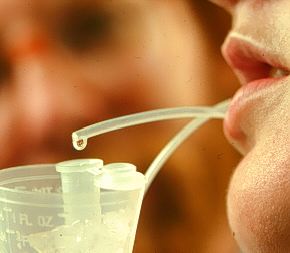
Sjogren
Sjogren’s Syndrome Overview
Sjogren’s syndrome is an autoimmune disease named after a Swedish Ophthalmologist, Henrik Sjogren. It is characterized by abnormal production of antibodies against certain body tissues particularly the glands. This would cause inflammation and malfunction of the glands. Sjogren’s syndrome could coexist with connective tissues diseases such as rheumatoid arthritis, systemic lupus erythematosus and scleroderma. In this case it is called secondary Sjogren’s syndrome.
Sjogren’s Syndrome Cause
The true cause is not known but it is believed to be genetically inherited as it often runs in the family. Female has a higher prevalence (90% of all cases).
Sjogren’s Syndrome Symptoms
Inflammation of tear (lacrimal) gland
This results in reduced tear production, eye irritation, dry eye, eye infection and abrasion to the cornea.
Inflammation of the salivary gland or Sialadenitis
This causes dry mouth, ulcers, sore mouth, gum diseases, dental caries, stones in salivary glands, difficulty in swallowing and dry lips.
Inflammation of other glands
This is not so common but could happen to glands over vagina (pain during sexual intercourse) and breathing passages (leads to lung infection).
Inflammation not involving glands (extraglandular)
- Arthritis (joint pain)
- Kidney problems
- Nerve problems
- Lymph node swellings
- Lung infection
- Muscle diseases
- Vasculitis ( inflammation of blood vessels that leads to damage of tissues supplied by them)
- Hashimoto’s thyroiditis – abnormal thyroid hormone level
- Gastroesophageal reflux that causes heartburn
- Primary biliary cirrhosis that causes scarring of liver
- Lymphoma (cancer of lymph nodes)
When to take action on Sjogren’s Syndrome?
If you think you have abnormal persistent dryness in any part of your body especially the eyes and mouth you should act promptly to see a doctor. People with recurrent conjunctivitis also should take note as persistent eye dryness would lead to conjunctivitis.
Sjogren’s Syndrome Diagnosis
If you have suspected symptoms please go to a doctor and you would be examined carefully. Usually blood tests would be conducted. Sometimes, gland biopsy is done to confirm findings. Tear test, salivary flow and production tests are done as well for specific cases.

saliva test @ wwwdir.nidcr.nih.gov
Sjogren’s Syndrome Treatment
Doctors could only provide symptomatic treatment as there is no cure for Sjogren’s syndrome.
Dry eyes – medicated eye drops prescribed by doctors, artificial tears, eye ointment
Dry mouth – artificial saliva, saliva stimulant, frequent sips of water, oral ulcer cream, routine dental check ups to solve dental decays, Biotene mouth wash and vitamine E oil
Breathing passages dryness – nasal spray
Vaginal dryness – vaginal lubricant
Other extraglandular complications are treated independently with several medications prescribed by doctors.
Conclusion
Do not feel bad if you have Sjogren’s syndrome as it is still treatable in a way. With researches done in depth nowadays a true cure would emerge soon. Most importantly, we should be able to diagnose the problem and cure the symptoms as early as possible before it worsens.
![Reblog this post [with Zemanta]](http://img.zemanta.com/reblog_e.png?x-id=f6e0dbf4-52ee-454d-8755-65afc705b29b)
Pingback: Oral Health Pt 3: Importance of saliva | Intelligent Dental
Pingback: Oral Health: Relationship between the body and mouth II | Intelligent Dental